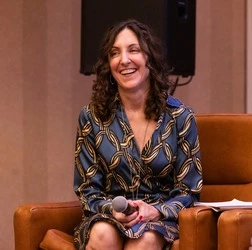
As an HR professional, you stand at the crossroads of organizational goals and the complex needs of employees – a position that comes with a unique set of challenges. From the high stakes of your decisions to the emotional intricacies of handling interpersonal workplace issues, your role is both pivotal and demanding.
Given the weight of your responsibilities, it's not just a good idea to prioritize self-care – it's essential. After all, you aren't just responsible for the well-being of the company's workforce, but also your own! As custodians of organizational culture, ensuring your personal well-being becomes imperative to perform at your best and set the right precedent for the entire team.
Recognizing the Unique Stressors of HR
At the heart of every thriving organization is a competent HR team, but behind the scenes, you grapple with a unique set of stressors. One of the lesser-discussed aspects of your role is the emotional burden you shoulder. Whether it's handling sensitive personnel issues, mediating conflicts, or managing layoffs, HR often becomes the epicenter of emotionally charged situations. There is also the need to balance organizational objectives with the aspirations and needs of individual employees, a juggling act that requires tact, empathy, and discernment.
Furthermore, the decisions made by HR don't merely affect day-to-day operations; they often have lasting implications on careers, team dynamics, and the broader organizational culture. It's these high stakes, combined with the emotional intricacies, that make the stressors of HR distinctly challenging.
The Foundation of Self-Care: Setting Boundaries
For HR professionals, navigating the balance between being approachable and maintaining personal well-being can be a tightrope walk. A critical aspect of this is mastering the art of saying, "No." While it's essential to be accessible, it's equally crucial to delineate personal time, ensuring you aren’t perpetually on-call. This not only helps in maintaining mental equilibrium but also ensures that when you are engaged, you can provide undivided attention and care.
Techniques such as setting specific 'office hours' for non-urgent queries, employing automated communication tools that indicate availability, or simply communicating periods of unavailability can all be helpful. Implementing these doesn't mean you become distant; rather, it signifies professionalism and self-respect. By establishing and transparently communicating boundaries, you can safeguard your well-being while continuing to serve at the highest level.
Prioritizing Mental Health: Techniques Tailored for HR
Navigating the maze of interpersonal dynamics and organizational needs, you may frequently find yourself in the eye of the storm. For moments of acute stress, quick mindfulness practices, such as focused breathing (for example, three-second inhale, six-second exhale) or brief grounding exercises, can offer immediate relief. These short breaks don’t fix everything, but they do act as resets, allowing for a clearer perspective.
In addition, just as you encourage employees to monitor their mental health, you must also regularly check in with yourself. This could mean seeking therapy, counseling, or simply taking moments to reflect on your mental state. Familiarity with the organization's EAP (Employee Assistance Program) can be an asset. You must remember that the EAP is there for you too and can be accessed discreetly, ensuring that you are well-equipped to handle the unique pressures of your role.
READ: Previous Balancing Act: Stress Management for HR Posts
The Ripple Effect: How HR's Well-Being Influences Organizational Culture
At the crossroads of company dynamics, HR professionals have a profound influence on organizational culture. When you are mentally refreshed and at your best, your interactions with employees are more empathetic, constructive, and effective. On top of this, HR's approach to self-care doesn't go unnoticed by the rest of the team. By actively prioritizing your mental well-being, you not only advocate for the importance of self-care but also model it. This sets a positive precedent, subtly encouraging employees at all levels to adopt similar practices, fostering a culture where well-being is valued and practiced across the board.
Tools to Include in Your HR Self-Care Toolkit
Every HR professional should arm themselves with resources tailored to their unique stressors. This will need to be very personal to your own situation, but here are a few ideas for you:
Apps: Meditation apps like 'Headspace' or 'Calm' can offer on-the-go relaxation.
Books: Titles like ‘Daring Greatly’ by Brené Brown or ‘Emotional Agility’ by Susan David delve into emotional intelligence and resilience.
Podcasts: I may be biased, but I’ve just started "Stress in 60," which provides daily stress-management tips and reminders in less than 60 seconds per episode, and I think this is a great format for busy professionals.
Online Platforms: Join forums like the HR Exchange Network for peer support and expert advice.
Prioritizing self-care isn't just about alleviating stress; it's also about growth. By continuously updating your toolkit, you invest in your well-being and professional development.
The Dual Role of HR in Personal and Organizational Wellness
HR professionals like yourself play an instrumental role, not only in organizational well-being but in your own personal wellness journey. Embracing self-care isn't selfish; it's vital. By prioritizing your own health, you create a ripple effect of positivity and resilience throughout your organization. Make your well-being non-negotiable.
Don't miss your chance to talk about the merits of wellness benefits and how to really help your people - and yourself - with mental health and wellness at work during HR Exchange Network's upcoming talk with Claude Silver, the Chief Heart Officer at VaynerMedia. It's free and interactive. Register now!
Empowering the HR community

Join HR Exchange Network today and interact with a vibrant network of professionals, keeping up to date with the industry by accessing our wealth of articles, videos, live conferences and more.
Join NowPhoto by Andrea Piacquadio for Pexels
















